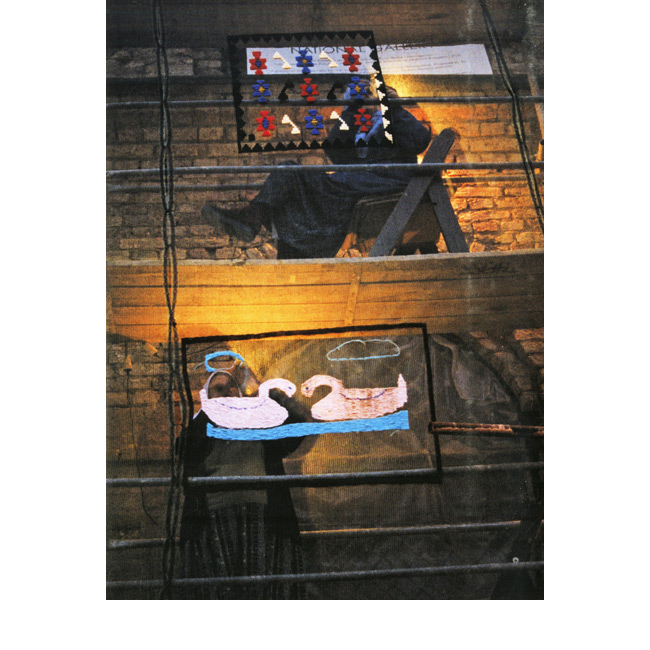
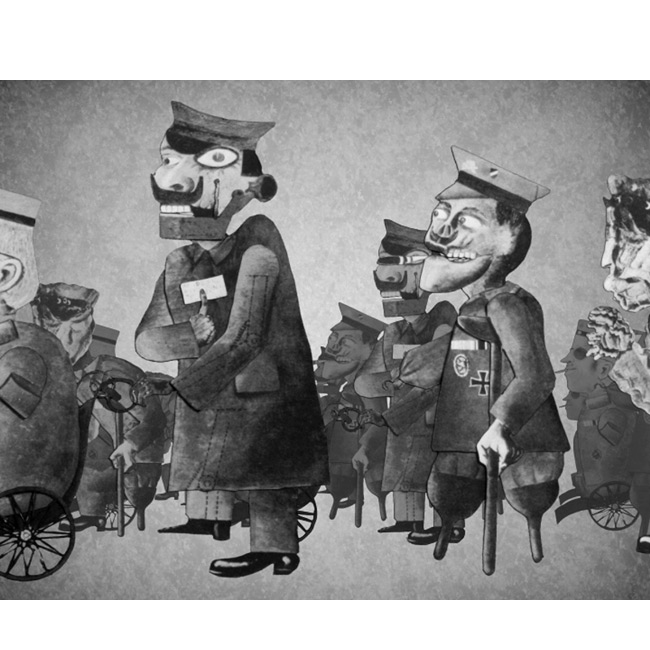
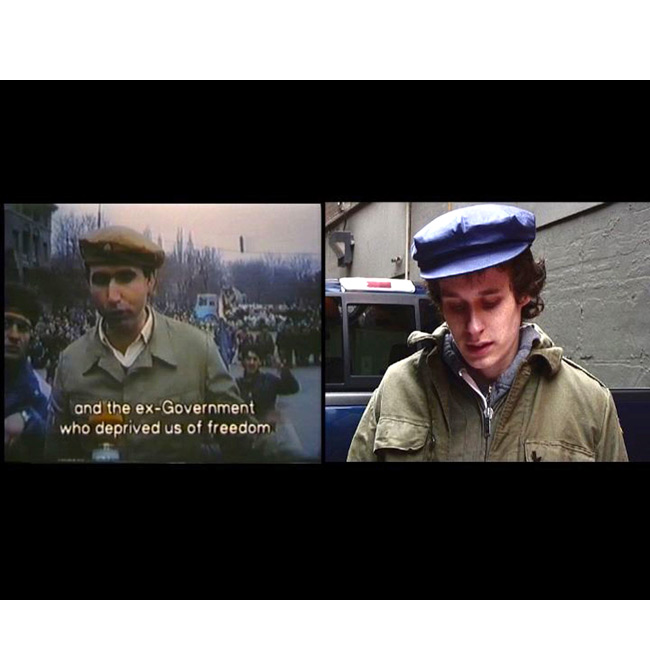
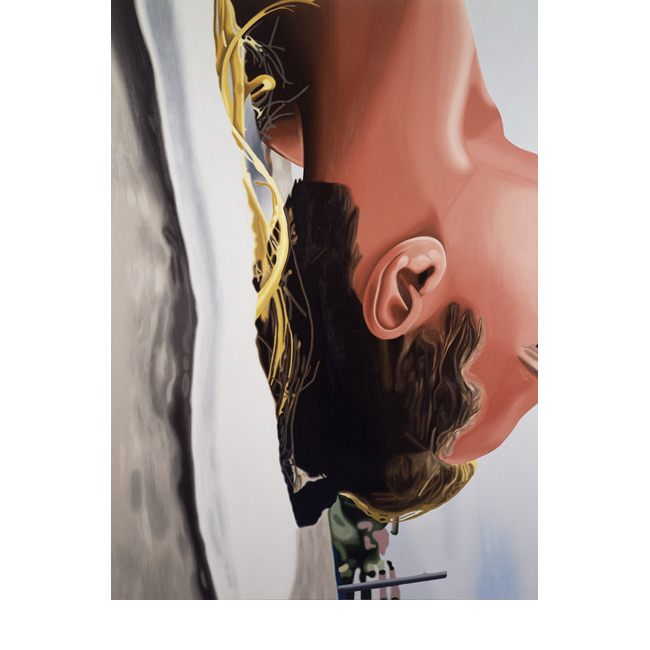

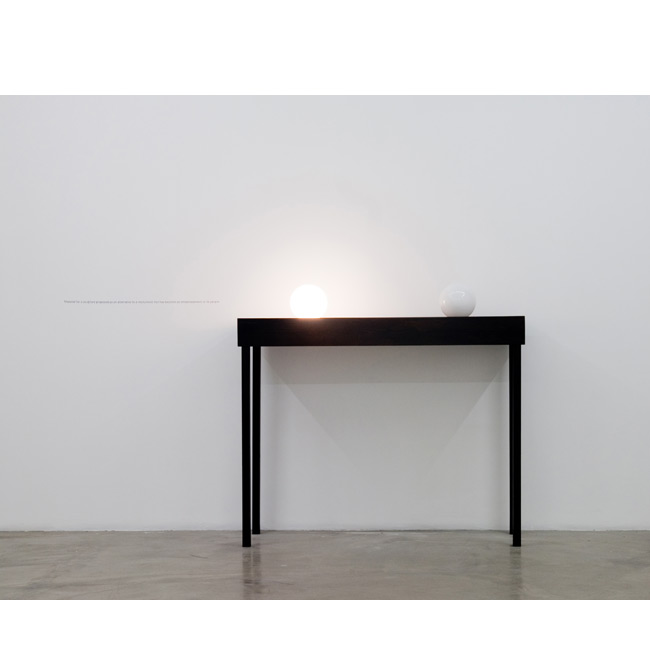
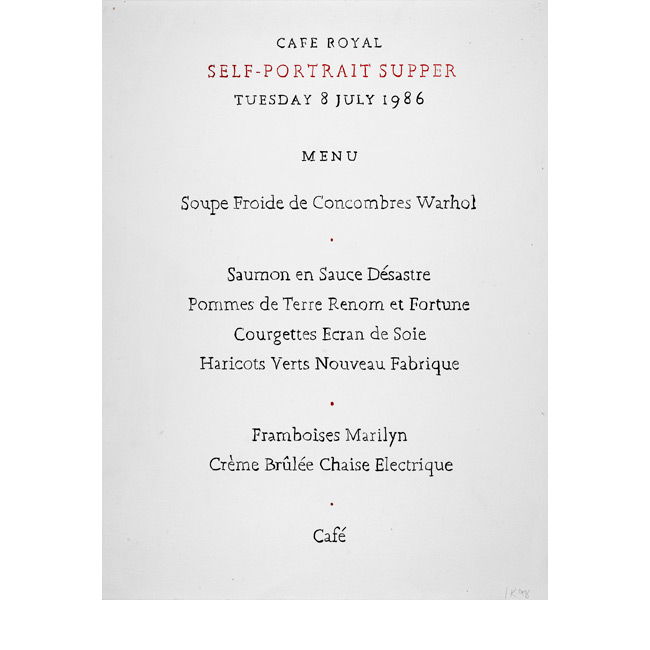
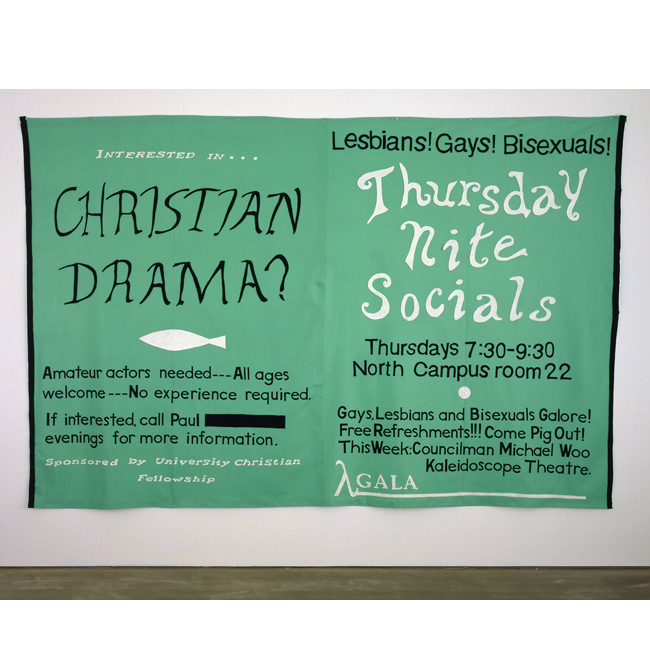
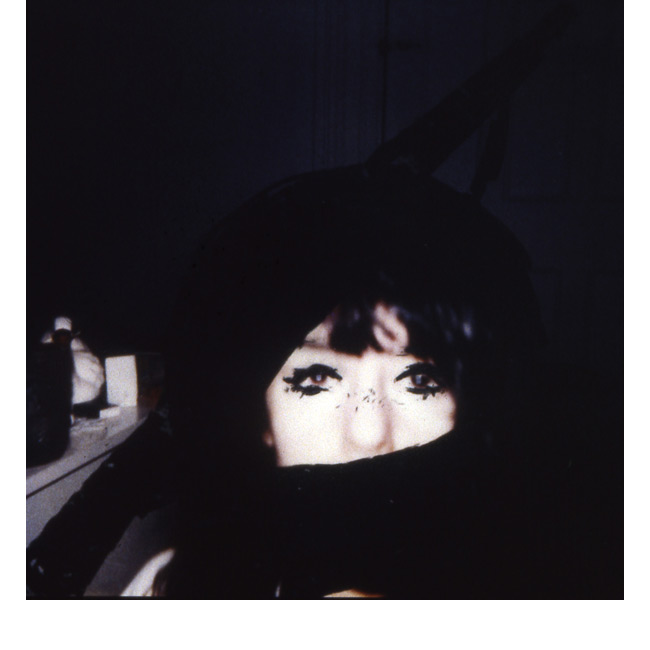
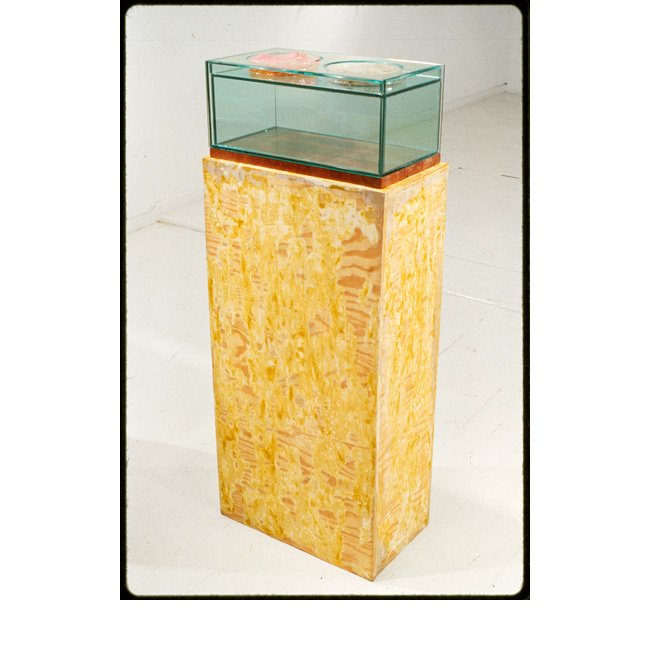
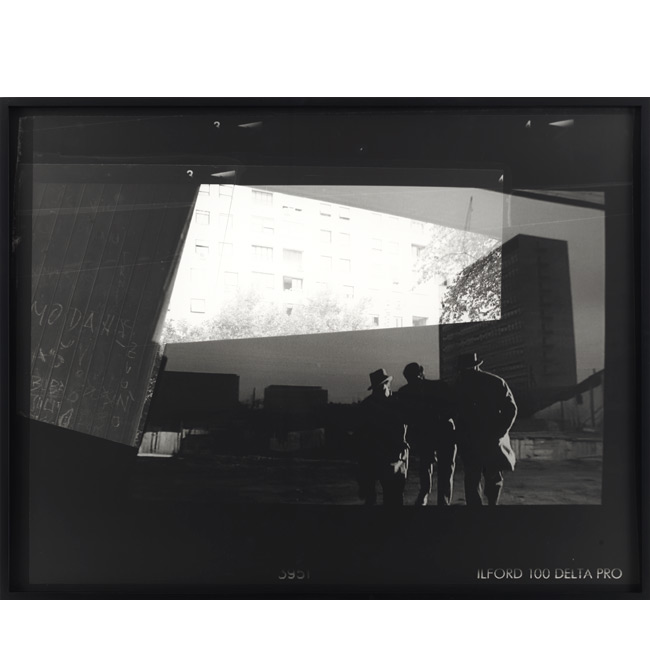
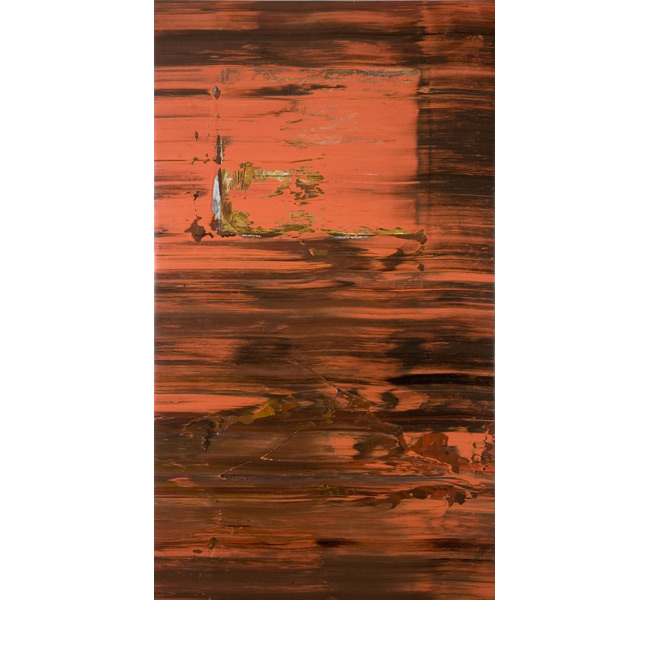
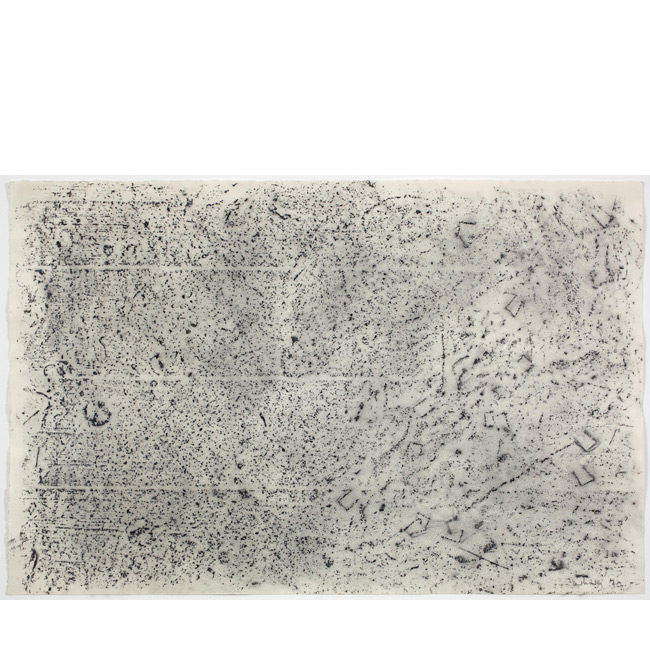
Speak, Memory
May 1–June 8, 2013
Speak, Memory, an exhibition in two-parts, offers a provocative exploration of the subject of memory in art that spans the past 45 years. In his autobiography, Vladimir Nabokov likens memories to glimmers of light that shoot up in a vast darkness without warning or explanation. Focusing on each glimmer of memory as it appears, associatively and in a non-linear fashion, the author gradually constructs his identity. The exhibition Speak, Memory draws upon Nabokov's questioning of time and personal history in order to examine the ways in which memory is constructed and represented in contemporary art.
The exhibition is curated by Modern Art: Critical and Curatorial Studies graduate students, Tamar Margalit and Beau Rutland. Margalit and Rutland each address the subject of memory in different ways. Margalit's section examines the reactivation of personal and collective memory in art from the past two decades. The represented artists evoke an array of places and episodes in recent history through such mnemonic devices as the construction and mining of archives, animation, re-enactment, photomontage, and interventions in the commemorative public space. These serve as a way to interrogate moments of social rupture that inform their life experiences. Seen together, the works posit the continual resuscitation of the past as a way to digest and respond to drastically changing socio-political realities—or as a means to assert the futility of such attempts. Altogether, the exhibition reveals, as Margalit notes in her curator's text, the "folds in which past and present co-exist." The artists are: Maja Bajevic, Yael Bartana, Irina Botea, Dor Guez, Iman Issa, David Maljkovic, and Walid Raad.
Rutland notes that the everyday surrounds us; in today's world, it is continually documented through social media. Yet the artworks selected, made between 1970 and the onset of the Internet era, represent the ways in which artists used daily life as a starting point for pre-digital artistic production and experimentation. His grouping attempts to depict the quotidian in a manner that is neither critical nor nostalgic. The artworks evoke thoughts and feelings experienced. Oscillating between the personal and the opaque, the works comprise three themes: portraiture of the everyday, studies of the ephemeral, and the daily life of the artist. Brought together, they reflect, not only the literal everyday stuff we might think of as part of our quotidian environment, but also what Rutland calls "interruptions from the ordinary," ranging from the clutter in a studio to unanticipated illness. The artists are: Lutz Bacher, Alex Bag, Peter Cain, Michael Hurson, Jane Kaplowitz, Mike Kelley, Karen Kilimnik, Liz Larner, Glenn Ligon, Kim MacConnel, Ree Morton, and Jack Whitten.
Speak, Memory is the inaugural presentation of the MODA Curates series—an annual opportunity offered by The Miriam and Ira D. Wallach Art Gallery and the MA in Modern Art: Critical and Curatorial Studies Program (MODA) for outstanding curatorial proposals related to students' theses.
Events
Curator's Tour of the current exhibition, Speak, Memory
Wednesday, May 8, 2013
4–5 p.m.
Film Screening and Literary Reading
At Midnight the Moon Says I Love You: A Toast to American Poet, Frank Stanford
Tuesday, April 30, 2013
Judith Lee Stronach Center, 8th Floor, Schermerhorn Hall
Midnight. Doors open at 11:30 p.m.
Host Ariana Reines and special guest, filmmaker and author Irv Broughton, present a rare screening of the 1974 film, It Wasn't a Dream, It Was a Flood. The film, a dream-like documentary about poet Frank Stanford, won the NW Film and Video Festival in 1975.
Broughton will also read from his just-completed novel, The Levees that Break in the Heart, loosely based on Stanford's family years growing up in Memphis and in levee camps along the Mississippi and other rivers. The book documents Stanford's adoption by a single woman, Dorothy Alter, and the later cultural milieu of levee-camp life, where his father worked the river as a levee contractor. Living side-by-side in the camps, Whites and African-Americans together, clearly helped shape Frank Stanford's unique vision, his life and work.
Irv Broughton is a filmmaker, writer and teacher known for discovering the poet Frank Stanford. Through Mill Mountain Press, his small-press operation, he served as publisher for nearly all of Stanford's books during the poet's life. He is considered a major chronicler of American life from his work in capturing on film and tape the memories and recollections of writers, producers, fliers and lots of everyday people. Author of more than a dozen books, his most recent publication is The Lost Peninsula: Adventures in Florida as Told by the People Who Lived There.
Ariana Reines is a poet, playwright, and translator, currently teaching at Columbia University's School of the Arts. Her books of poetry include The Cow (2006), which won the Alberta Prize from Fence Books; Coeur de Lion (2007); and Mercury (2011). Her poems have been anthologized in Against Expression (2011) and Gurlesque (2010). Known for her interest in bodily experience, the occult, new media, and the possibilities of the long or book-length form, Reines has been described as "one of the crucial voices of her generation" by Michael Silverblatt on NPR's Bookworm. Reines earned a BA from Barnard College, and completed graduate work at both Columbia University and the European Graduate School, where she studied literature, performance, and philosophy.
Opening Reception: Speak, Memory
Tuesday, April 30, 2013
6–8 p.m.


